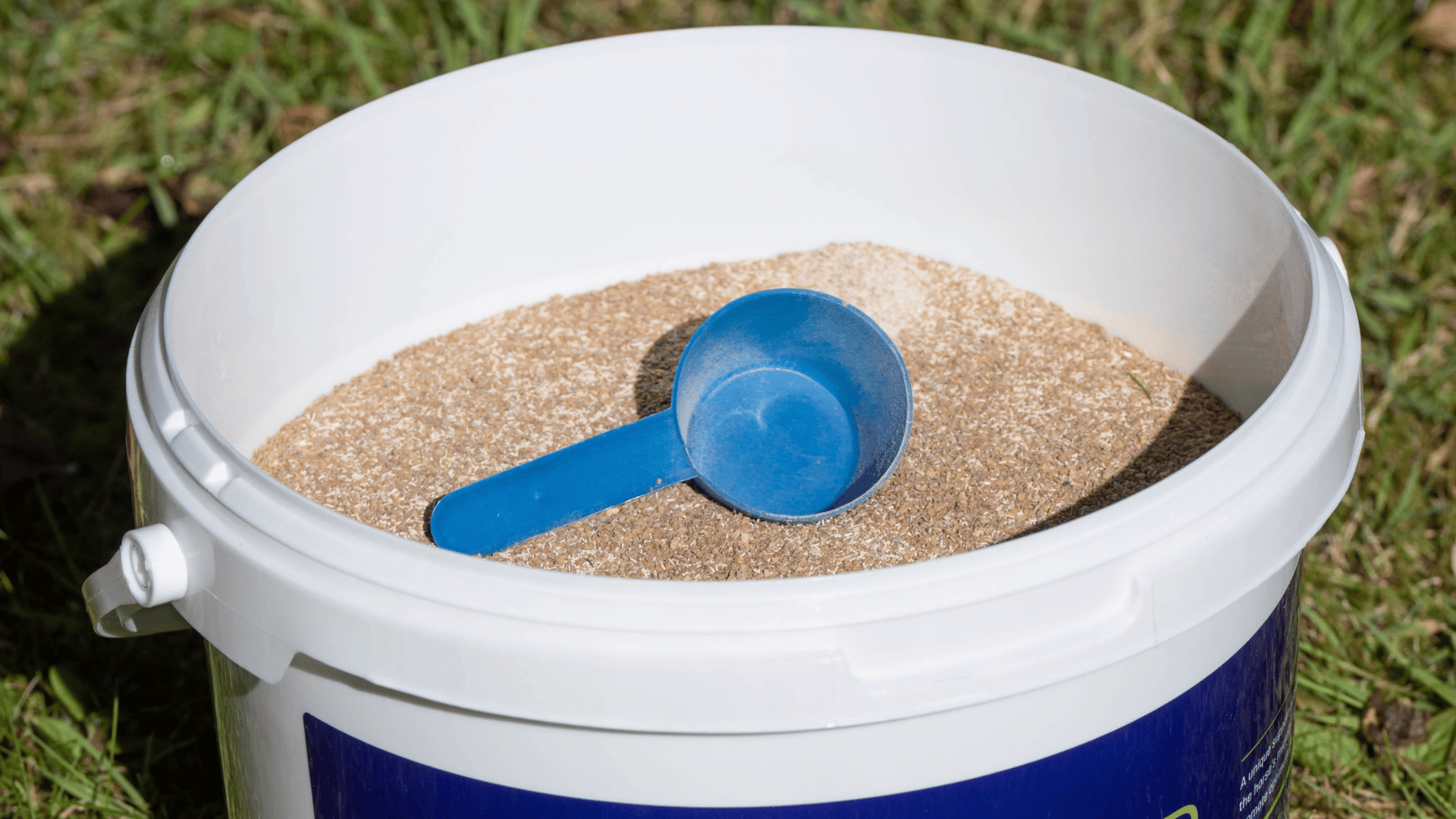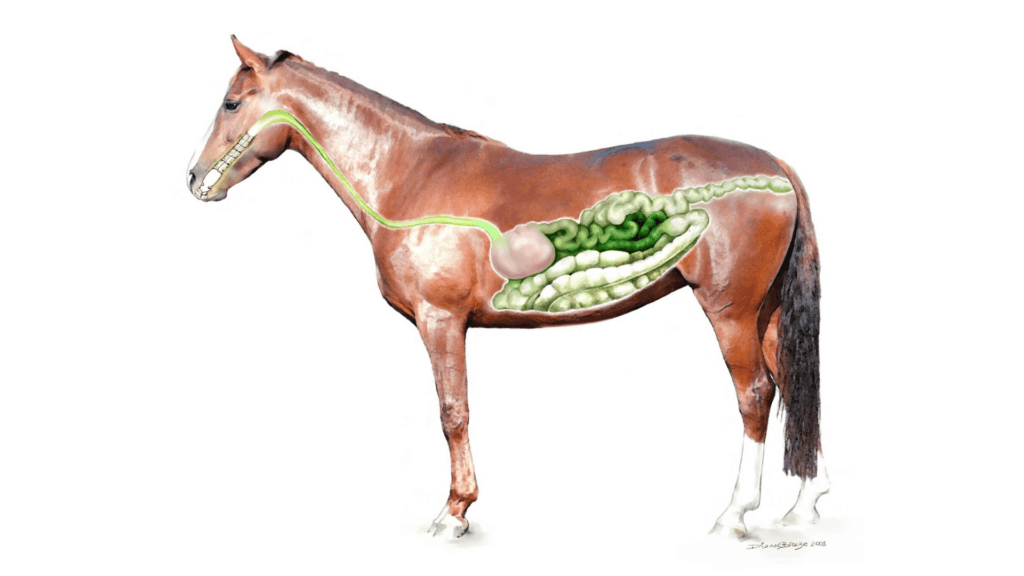Gut Supplements – What Are They and Does My Horse Need One?

Gut Supplements – What Are They and Does My Horse Need One?
Horses are reliant on a large population of bacteria and other microorganisms, in the hindgut, which ferment the fibre in their diet to release energy and other nutrients that the horse can use. Collectively known as the ‘microbiome’, the health and balance of these microorganisms is key not only to the host horse’s digestive efficiency, but its overall health too, since some species produce valuable B vitamins and others are involved in the immune response.
What’s in a gut supplement?
Ensuring the horse’s diet is fibre-based is therefore important for a healthy microbiome but, if things get out of balance, additional help may be needed and that’s when gut supplements or ‘digestive enhancers’ can be useful. Here we’re talking typically about those supplements designed to provide support for the gut – but not specifically targeting the stomach – which may contain one or a combination of pre-, pro- or postbiotics to support the beneficial microorganisms – the microbiota – that make up the microbiome.
Prebiotics
These tend to be sugars called oligosaccharides, which the horse itself cannot utilise. Those most commonly used for horses are fructo- and mannan- oligosaccharides, which have different modes of action. Fructo-oligosaccharides, like Baileys Digest Plus, act as a food source for beneficial bacteria so that they can flourish at the expense of any pathogenic species. Mannan-oligosaccharides ‘bind’ to harmful bacteria so that they can’t attach to the gut wall and are carried out with the faeces.
Probiotics
While probiotics for humans contain live bacteria, there are no species authorised for use in horses, so we use the term to refer to live yeast cultures. These help ferment dietary fibre and also ‘out-compete’ lactic acid-producing bacteria, causing their numbers to drop and thereby reducing the risk of increased acidity levels, which can lead to problems. The fibre-digesting microorganisms are anaerobic and sensitive to any small amounts of oxygen which may occur in the hindgut so yeasts bring the added benefit of mopping up that oxygen as they do need it to live.
Brewer’s Yeast
This is the dried, deactivated remains after yeast has been used for fermentation during the brewing process. It is a rich source of B vitamins and also mannan-oligosaccharides so can have a prebiotic effect.
Postbiotics
During fibre fermentation the microbiome produces metabolites, which include the volatile fatty acids that are used for energy as well as others which are beneficial to the horse’s health and well-being. Postbiotics are produced by fermenting live yeast on a consistent medium in a very controlled environment. The yeast produces hundreds of metabolites, is then inactivated and the resultant product is a blend of the metabolites, cell wall fragments and other beneficial components.
Feeding postbiotics daily provides a constant level of metabolites directly to the horse, which is not affected by any stress the horse is subject to at the time. This helps support health, well-being, and any necessary recovery from stress or illness, effectively “taking the pressure” off the horse’s microbiome and allowing it to become reestablished at healthier levels.
Baileys’ new Better Biome contains pre-, pro- and postbiotics to provide a unique triple support package for the hindgut microbiome. It combines Digest Plus prebiotic with live probiotic yeast to support and stimulate the beneficial gut microbes, while postbiotics act as a back up to those produced by the microbiome.

When Might a Horse Need a Gut Supplement?
Loose Droppings
There are times when it is obvious that the gut is not healthy. Diarrhoea or really watery or foul-smelling droppings are good indications that all is not well in the horse’s digestive tract. A gut supplement should help improve the health and balance of the microbiome resulting, in due course, in healthier looking (and smelling!) droppings.
Underweight
Bacteria are living organisms which need a food supply. If the horse has had insufficient food and has lost weight, then it is likely that the friendly bacteria will have been ‘starved’ too, which allows harmful species to take advantage. This can lead to an unhealthy gut which can’t work efficiently and may mean that a horse won’t put on weight whatever he is fed. Giving a gut supplement, alongside an appropriate balanced diet, should help the microbiome to become more efficient so the horse gains more from what he eats.
Stressy/Excitable
Horses that get stressed or excited, especially when they travel or compete, often pass droppings frequently, get loose droppings and may come back from a show all ‘tucked-up’ as well. This can mean that bacteria are carried out quicker than they can maintain their numbers, leading to an imbalance that may result in increased acidity that has further detrimental effects on the microbiome and can cause inflammation and discomfort.
Gut supplements can help improve balance of the microbiome, helping stabilise gut pH, reducing the risk of discomfort and, potentially, helping the horse feel more at ease. Where gastric ulcers are suspected, these should be clinically diagnosed and treated accordingly.
Routine Changes
If a horse changes yard or is confined to the stable on box rest, the resultant changes to diet and routine make them vulnerable to stress-related digestive discomfort or upsets. Giving a gut supplement before, during and for a period after, times of stress, can help the microbiome remain more stable.
Antibiotics
By definition, antibiotics are designed to kill bacteria and, even though they may not ‘target’ those friendly species in the hindgut, it’s highly likely that some will suffer a depletion in numbers, especially from oral antibiotics. Feeding a gut supplement while the horse is on antibiotics and continuing for a period, once the treatment is finished, should help beneficial microbe populations recover.
Mares and Foals
Ensuring the pregnant and lactating mare has a healthy microbiome supports digestive efficiency and immunity and can influence the quality of her colostrum and milk. Recent research in Thoroughbred racehorses showed that those with a more diverse, healthy hindgut microbiome, as foals, went on to perform more successfully on the track as adults. Foals who suffer any health challenges, including diarrhoea, may benefit from the administration of an appropriate gut supplement to support their microbiome (always consult your vet first).
Veterans
Older horses may experience a reduction in digestive efficiency, especially if their fibre intake is compromised due to failing teeth. Ensuring more easily chewable forage alternatives are provided is essential, then a gut supplement will help support the recovery of the microbiome, in turn supporting digestion and immunity.






